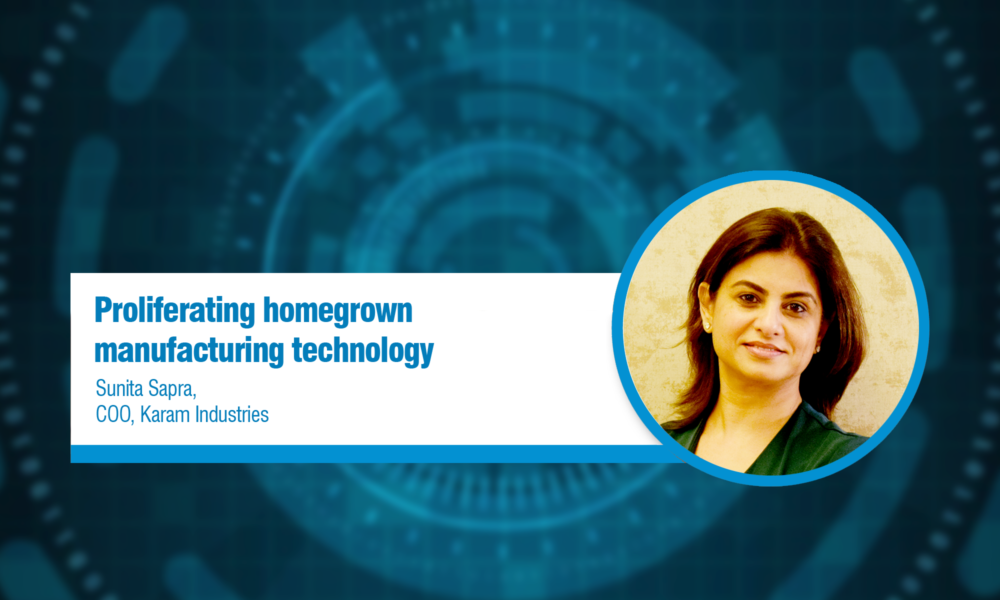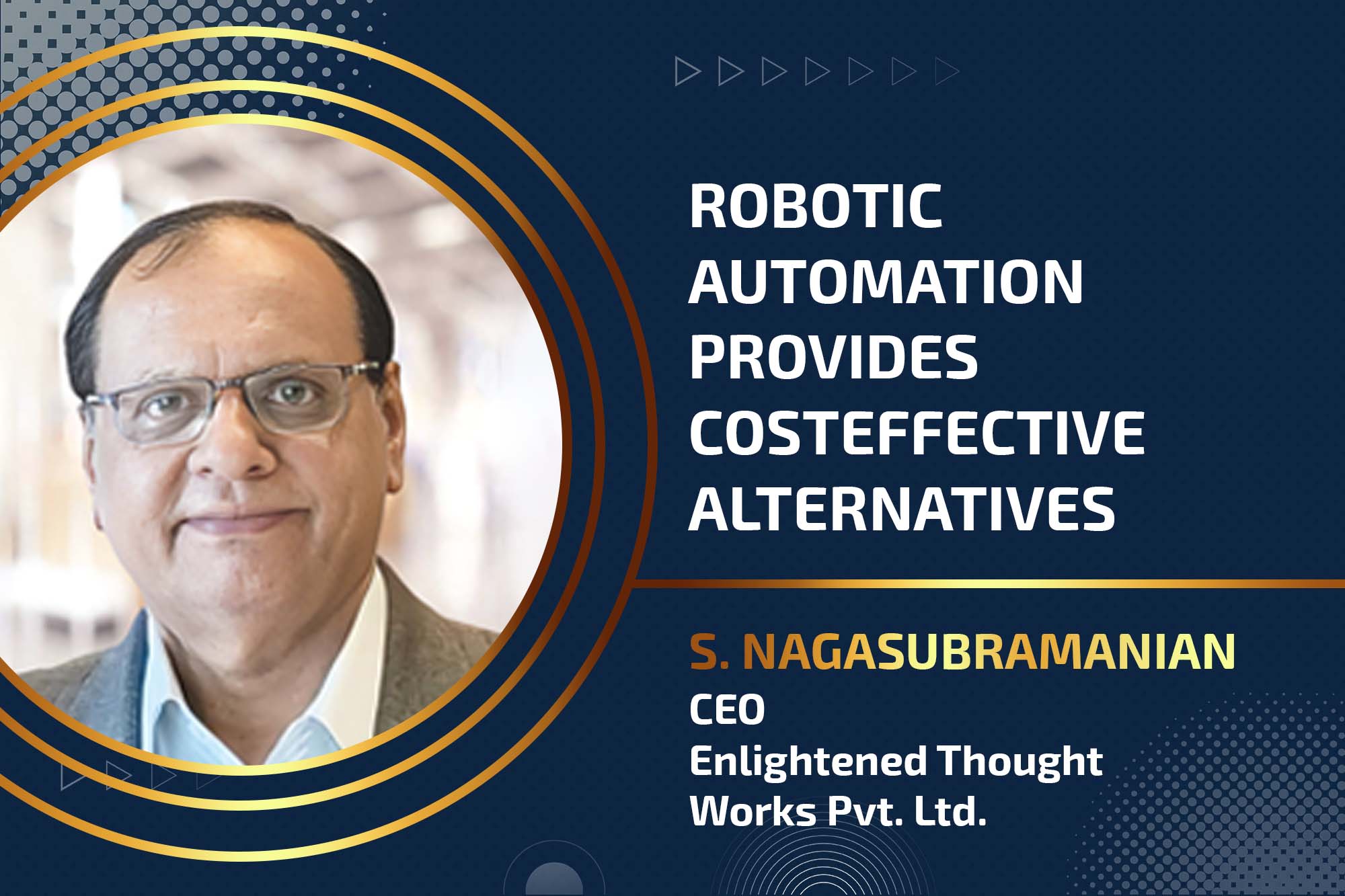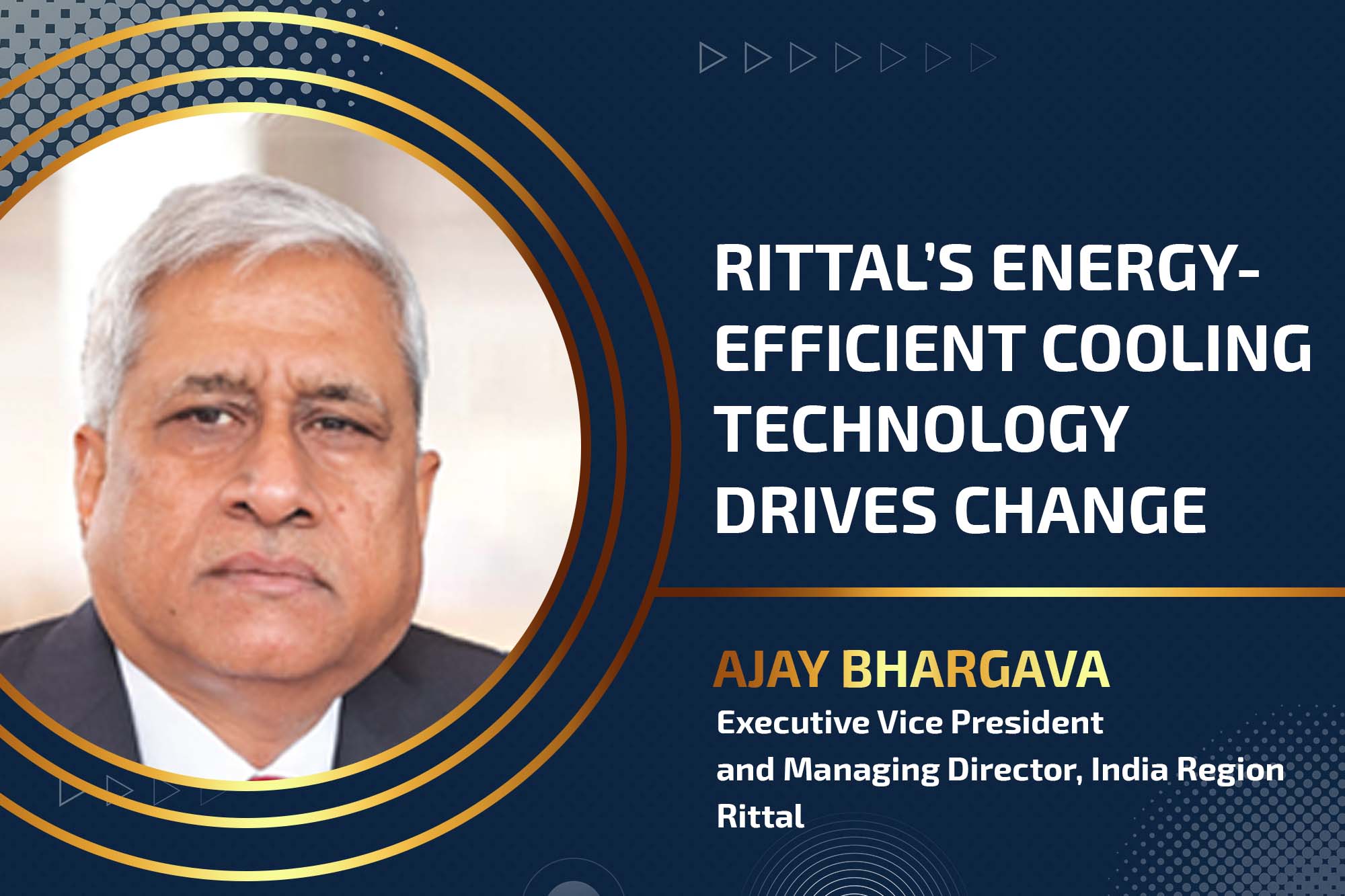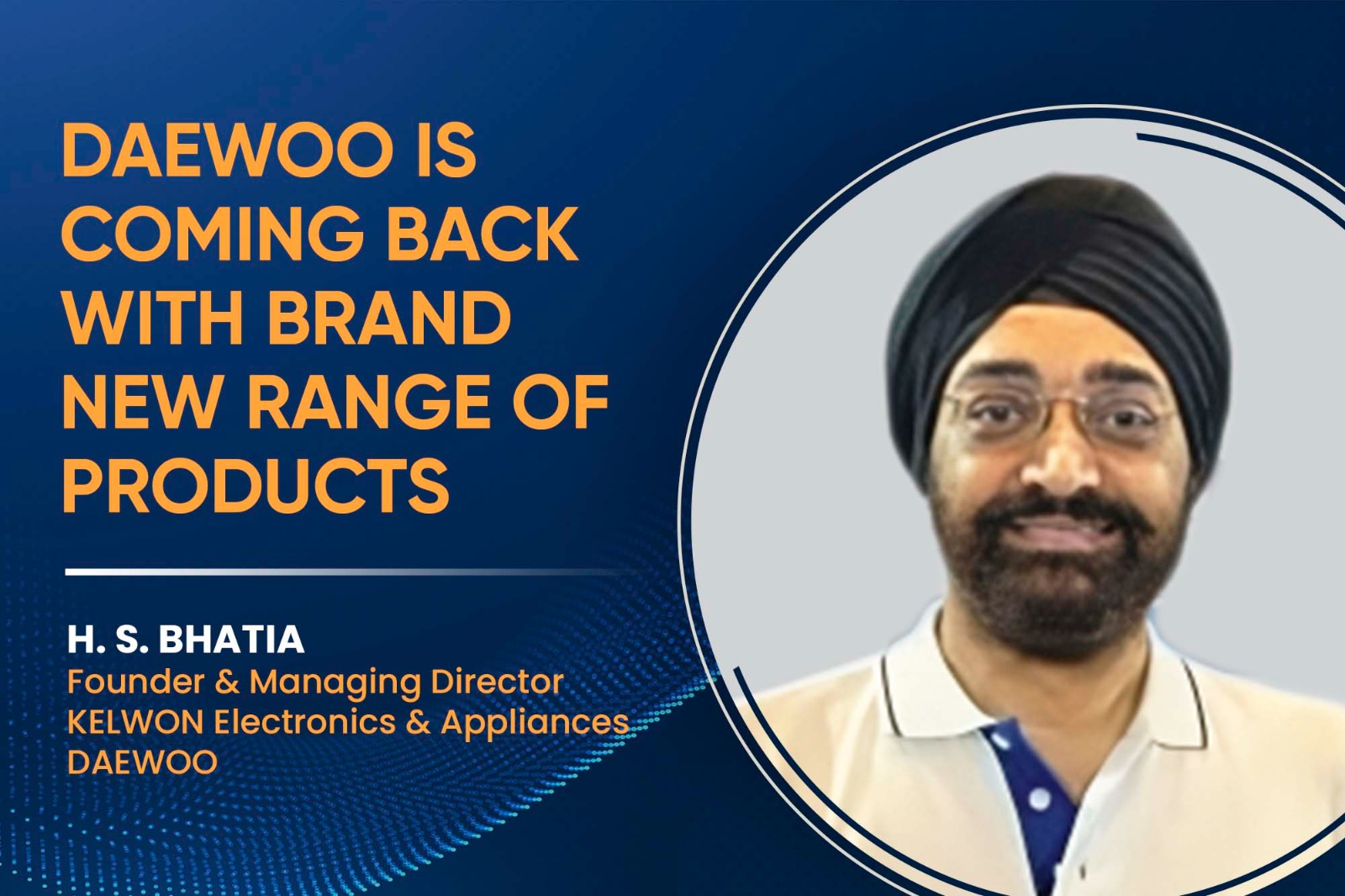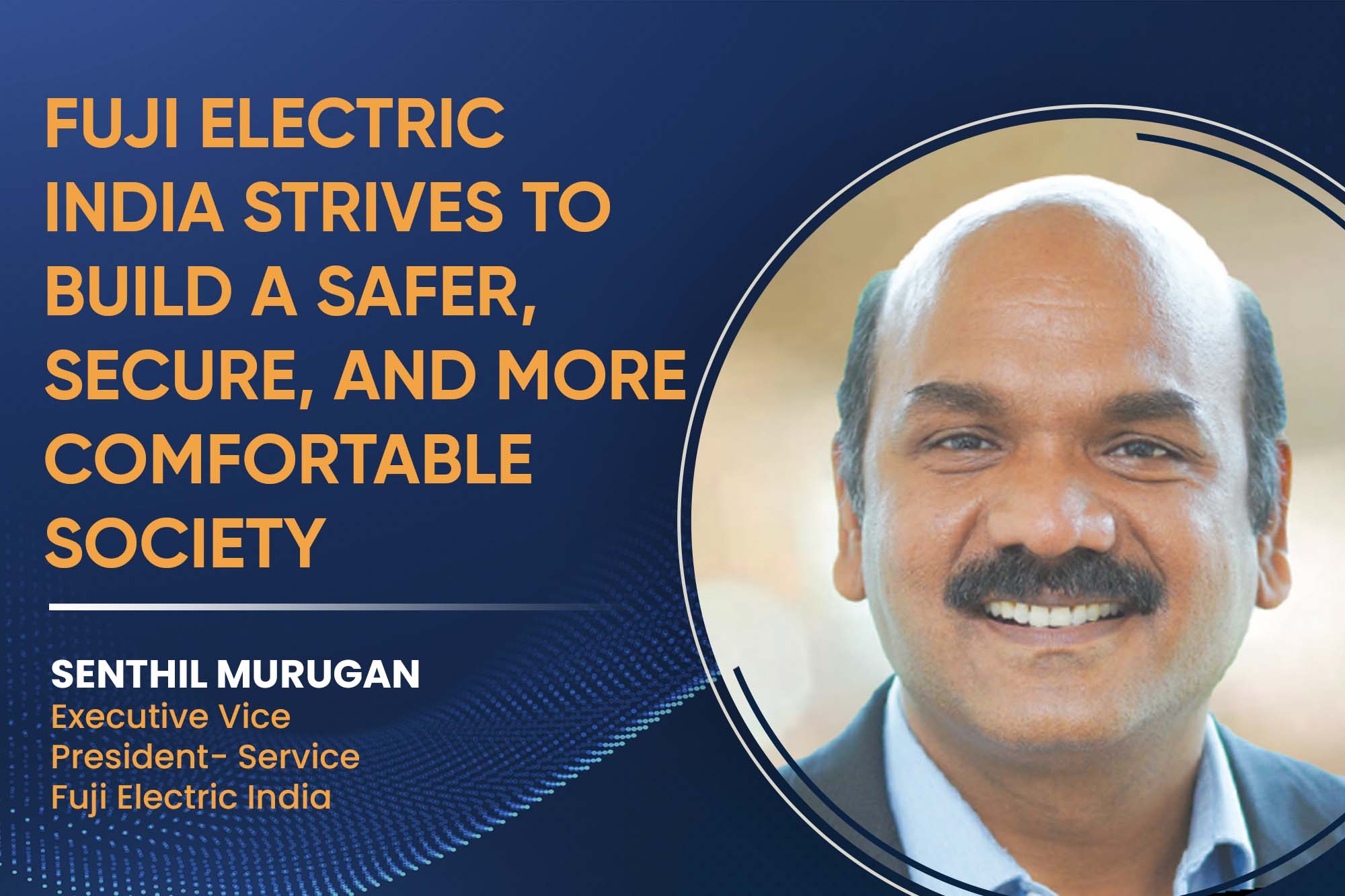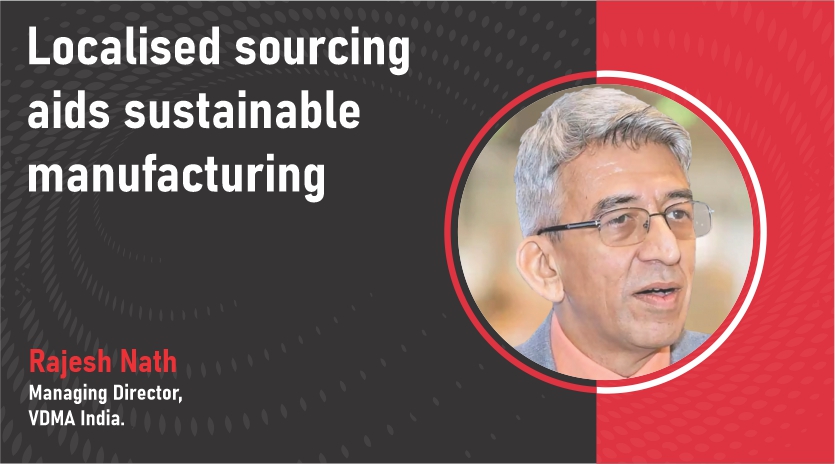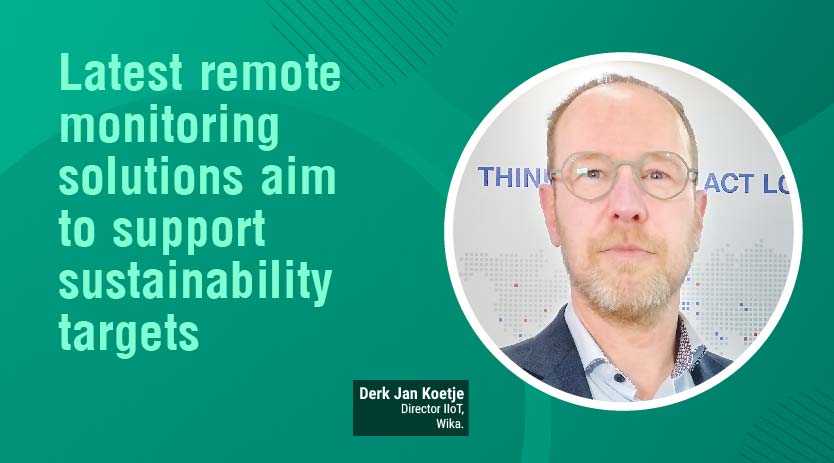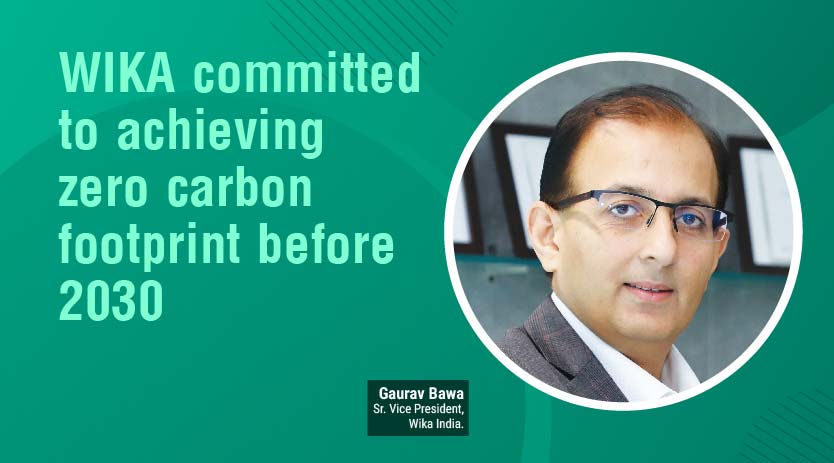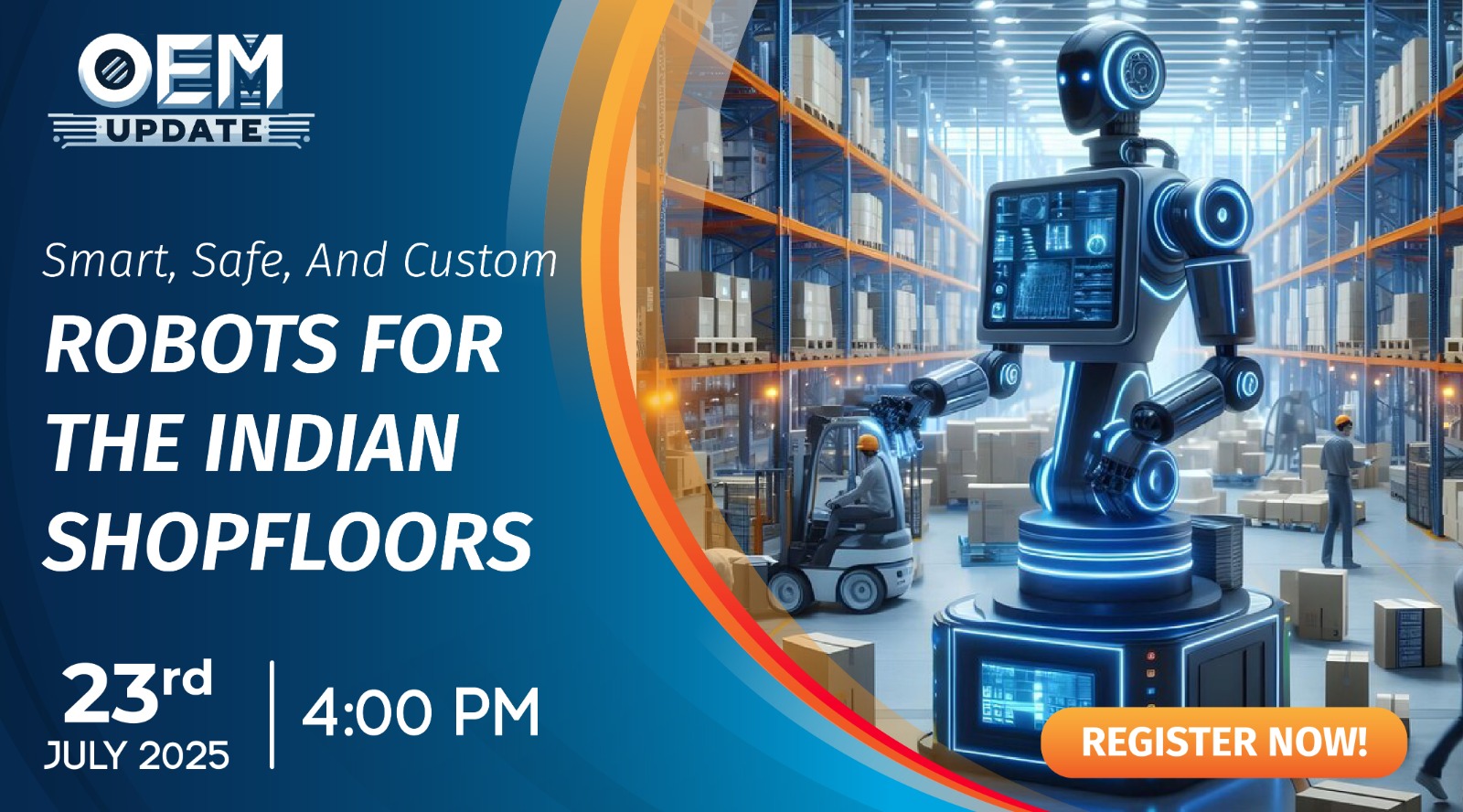Proliferating homegrown manufacturing technology
By OEM Update Editorial August 7, 2019 12:32 pm IST
India has to adopt homegrown manufacturing technology, else we will find it difficult to remain globally competitive, says Sunita Sapra, COO, Karam Industries, while discussing, how homegrown technology confers technological autonomy which is crucial for the growth of an economy.
Please walk us through a brief journey of KARAM Industries so far.
KARAM Industries was founded in 1998 by Hemant Sapra and Rajesh Nigam. They are the leading manufacturers of personal protective equipment in India, and is counted as one of the global leaders. KARAM Industries began by manufacturing industrial safety belts in a small rented accommodation in Lucknow. From a small rented accommodation, with a workforce of 5 in 1998, KARAM Group has expanded to employing over 3,000 people and has offices in Noida, Bangalore, Mumbai, Hyderabad, Vadodara, Pune, Raipur, Kolkata, Chennai, Nagpur, Pune and Indore. The company today manages a factory area in excess of 1.75 lakh square feet and has 32 global offices.
In 1999, KARAM became the first Indian company to manufacture full-body harnesses that met European norms. In 2010, KARAM Industries established its R&D department and developed an entire range of fall protection equipment, that conforms to stringent American Standards. Today, the company manufactures 2,565 certified products. In 2012, KARAM launched KRATOS Safety, its company in Europe, and an office and marketing company in Dubai. In 2017 KARAM industries opened virtual offices in Australia and Brazil and, in the same year its employee strength grew to 2,600. In 2018 KARAM Industries became the official license partner for Black & Decker’s PPE range.
Why do you think homegrown manufacturing technology is vital to India’s growth?
Homegrown manufacturing technology is vital to India’s growth, because, in the 21st-century, technology is crucial for development. Unless India has homegrown manufacturing technology, it will find it difficult to remain globally competitive. Importantly, the ambition to grow into a $5 trillion economy, will be thwarted in the absence of a larger domestic manufacturing sector.
Today, the manufacturing sector employs approximately 16 per cent of the Indian workforce. During the next 4 years, if the economy is to remain on target to grow into a $5 trillion economy, manufacturing will have to employ a larger share of the workforce. Finally, when India becomes a $5 trillion dollar economy, the manufacturing sector will employ at least 25 per cent of the domestic workforce. During this journey, the quality and quantity of homegrown manufacturing technology will have to continuously improve and proliferate. Another important advantage of homegrown technology is, it confers technological autonomy. Such autonomy is crucial for the growth of an economy.
What reliability and quality challenges are being faced by the personal protective equipment industry?
A few challenges faced by the PPE industry are, that the standards set by the government have remained unchanged despite advances in technology and changes inindustry requirements. While European norms were re-evaluated and made more stringent less than 3 years ago, norms set in India have remained unchanged for over a decade. This is a cause for serious concern as it imperils the lives of millions of Indian workers. More stringent norms will lead to greater competition in the PPE industry and lead to the development of higher quality PPE by manufacturers.
The prevalence of a large number of players in the unorganised sector is also a huge for concern. Such players manufacture and sell PPE that is ambiguously labelled with respect to the level of protection they offer against hazards. Hence, many workers wearing such PPE, wrongly believe themselves to be safe.
Why resource optimisation is crucial for manufacturers today?Resource optimisation is crucial, not only for manufacturers but also for every industry, concerning manufacturers; using resources optimally grows profits. By using resources optimally, manufacturers eliminate waste and may produce more using the same or fewer resources.
Today, globalisation also makes it essential to optimally use resources. The global market is more dynamic than ever before, despite murmurs of deglobalisation. Manufacturers can thrive in this market by adopting technologies that allow them to use resources as efficiently as possible. A global marketplace gives rise to welcome challenges where one needs to constantly innovate. Innovation allows manufacturers to create a better product, at a lower cost, using fewer resources. Hence, the most successful manufacturing processes tend to be those which minimise waste and optimally use resources. Similarly, the most successful manufacturing companies tend to those that employ processes that waste as little as possible.
Depleting fossil fuel reserves is also a reason to conserve resources. The energy supplied by fossil fuels is used to power machinery and to extract resources like heavy metal from Earth, hence when manufacturers waste even relatively abundant resources such as heavy metals; they still waste limited fossil fuels. Importantly, when resources, especially fossil fuels are used wastefully, it is not only unprofitable for manufacturers but harmful to the environment as well.
What transformations are underway in Indian auto manufacturing landscape? What are your views on AI reinventing automobile industry?
The Indian auto manufacturing sector is large and of tremendous importance to the domestic economy. Excitingly, leading global brands have established manufacturing facilities in India. At such facilities, automobiles and components are manufactured using techniques, not dissimilar to those employed overseas.Among some older Indian automobile manufacturers, it’s well known that 1 in 4 workers are assisted by robots. The use of industrial robots is an important transformation but certainly is not the last transformation.
While AI has advanced significantly over the past few years and has been employed to an extent by Indian automobile manufacturers, the day when AI completely replaces human workers is quite far. An important reason for this is the cost of labour in India is still quite low. Certainly, over the next few years, as living standards rise and AI becomes more advanced and affordable, there will be an inflexion point when manufacturers will have to adopt AI widely to remain competitive, yet that day is still decades away.
What are your company’s future plans?
We expect to continue growing just as we have over the past 2 decades. Our innovative manufacturing practices, an outstanding research and development team, and adherence to the best global practices will ensure on achieving we meet our short term and long term goals. We can soon anticipate an increase in the number of our domestic and international partners. We’re also planning to expand our product line in the domestic market and will explore opportunities presented by mergers and acquisitions for organic and inorganic growth of KARAM Group globally.
The standard norms for the PPE industy set by the Indian government have remained unchanged for over a decade despite advances in technology and changes in industry requirements.
Sunita Sapra, COO, Karam Industries
Cookie Consent
We use cookies to personalize your experience. By continuing to visit this website you agree to our Terms & Conditions, Privacy Policy and Cookie Policy.




